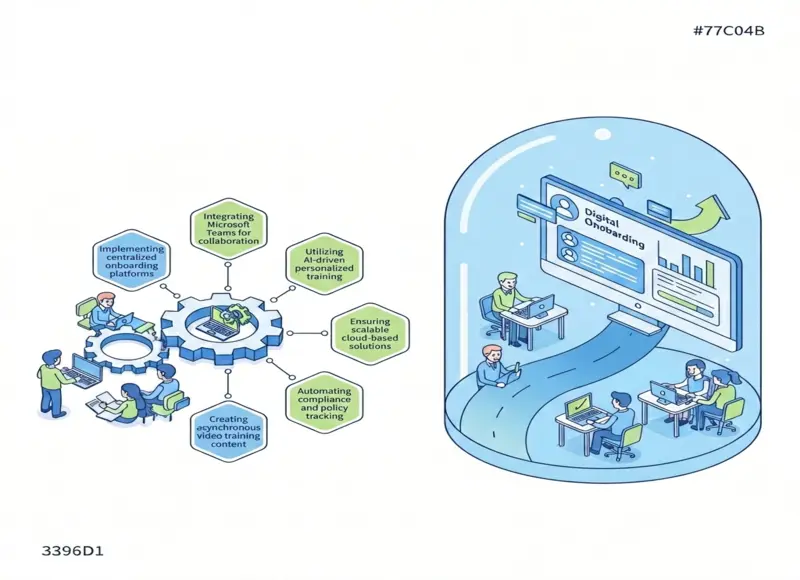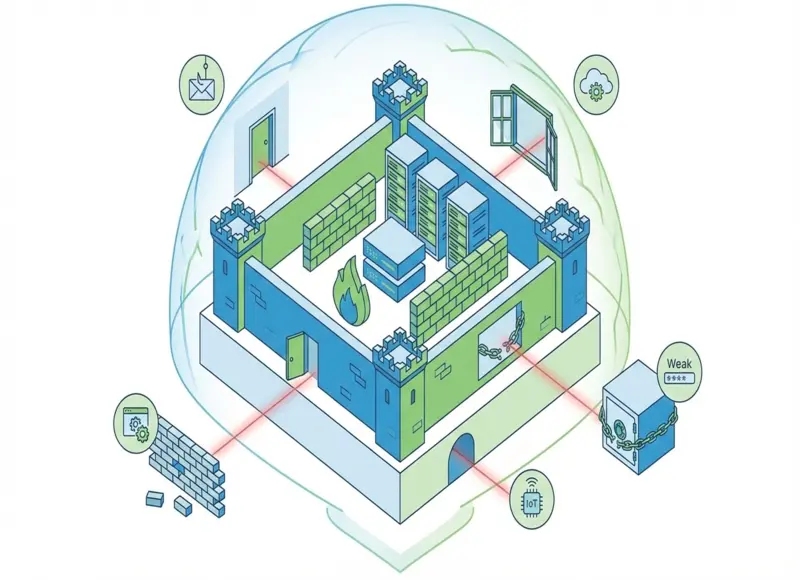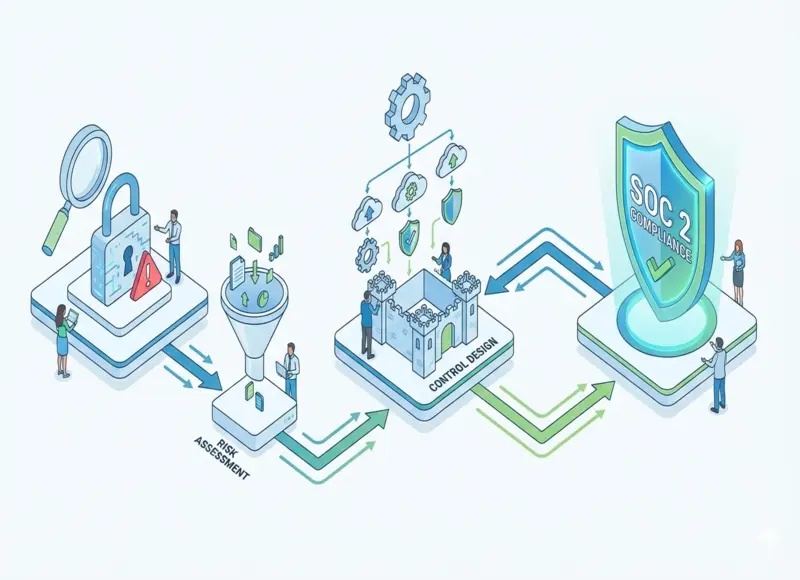Table of Contents
AI is transforming customer service recruiting by streamlining hiring, reducing bias, enhancing candidate assessments, and improving retention for stronger teams.

Artificial intelligence has long since ceased to be simply a tool for automating repetitive tasks. It changes the way companies hire customer service agents. From CV screening through onboarding, AI enhances every step of the hiring journey, leading to quicker, more equitable, and more effective recruitment, resulting in better quality for both the employer and the new hire.
AI streamlines the recruiting process
As one of the most excellent time-saving tools in recruiting for customer service roles, automated resume screening now quickly filters out unqualified applicants. Instead of wading through stacks of applications manually for hours on end, hiring managers are letting AI-driven systems do the heavy lifting. Such tools quickly weed out unqualified candidates and highlight applicants whose skills match the job.
Better-qualified employment matching is one more technique by which AI is changing the game. By analyzing past performance data, skills listed in resumes, and even subtle patterns in experience, the right people can be more easily connected to the right roles. All this results in fewer mismatches and better long-term outcomes for both the company and the employee.
Probably, the most discussed advantage of using AI in recruitment is the reduction of bias. Since it doesn’t require human judgment, which is often influenced by unconscious bias, AI can assess candidates on a consistently applied criterion. This does not make it flawless. However, well-trained, these systems help level the playing field for candidates from varying backgrounds.
One interesting development is how candidates themselves are using technology to gain an edge. According to specialists from Rezi, many are turning to AI resume builder software to optimize their resumes before applying. This not only helps applicants present their experience more clearly but also ensures their resumes align with the AI filters recruiters already rely on.
Enhancing candidate assessment with simulations
Role-play simulations have become the most popular way of assessing candidates for customer service positions. Apart from letting the candidates answer who they are, let them solve real-life situations on how to pacify a complaining customer or even resolve an issue at hand. This practical approach shows how that person will behave under pressure.
Automated rating brings these imitations a notch beyond. Not just resting on the viewpoint of interviewers, but also evaluated by AI with steady benchmarks. This helps to avoid direct bias and gives all hopefuls an equal chance to succeed. It lets hirers scan just the cream, saving time yet keeping things fair.
Communication and problem-solving sit at the heart of customer service. AI is fairly accurate in its determination. This can be achieved through an analysis of tone, word choice, and response speed to a question. Qualities picked up by the system would never be realized in a traditional interview setup. This ensures that the employer is getting employees who are great at interaction.
According to specialists from Aircall, technology like an AI voice agent is already being used in candidate assessments. For example, applicants may respond to customer inquiries in a simulation while an AI voice agent evaluates their clarity and tone. This not only improves consistency in scoring but also reflects the kind of communication style needed for the job itself.
Smarter onboarding and training for new hires
Personalized instruction stands as the most significant enhancement in onboarding due to AI. Instead of a one-size-fits-all approach, new staff receive personalized training modules tailored to their existing skills. For example, someone with excellent communication skills but weak product knowledge would have to be taken through something different from a well-prepared individual.
Another advantage is that real-time performance feedback during training can help beginners get off to a strong start. Mistakes can be traced right at the time they occur with provision for corrective actions or further practice immediately, meaning that little snags don’t grow into ingrained habits, and also that employees begin to have some measure of confidence in their abilities right from the word ‘go’.
Higher employee retention usually stems from a more interesting onboarding process. When employees perceive the value in their training, they’re more likely to stick around. AI tools that regulate the speed of training, monitor progress, and maintain interactive sessions constantly turn what would otherwise be a dreary affair into a meaningful experience with the company.
You can already see the influence of AI tools and AI in customer support in this area. For instance, chatbots that once handled customers are now used to guide employees through practice sessions. This makes the onboarding process more dynamic while giving recruits a taste of the very systems they’ll use on the job.
Improving long-term employee retention
Predictive analytics help companies see when their employees are most likely to leave. Using performance data, attendance, and even survey results, the AI systems can alert well in advance of some ominous signs. Managers can then step in and address the concerns before an employee decides to leave.
Engagement can also be attributed to AI-powered surveys. More personalized surveys are offered to the employees instead of generic questionnaires, concentrating on their actual work experiences. This helps companies accrue much more accurate insights and address issues quickly, thus indicating to employees that their voices do matter.
Career growth is another area where AI shines in mapping skills and performance to suggest highly personalized growth opportunities. Employees who are given a future to strive for are always more motivated to stay. It, therefore, benefits the worker who feels supported and the employer in cutting costs that would have been incurred through rehiring.
Reducing turnover is directly related to financial profitability since the repeated recruitment and training of new staff are costs that can be avoided. The AI has shed more light on risks and allowed better employee experiences; hence, companies will spend less on rehiring, yet pay off in the long run, reinforcing their existing teams. That’s a long-term investment.
Future of AI in customer service recruiting
Human intuition still matters, but the future lies in its amalgamation with machine efficacy. The recruiters will make the final call, but they will ensure that they are utilizing AI to work with the best possible pool of candidates. The conjunction between human beings and technology is already proving more potent than the singulars.
AI models evolve alongside the industries they serve, adapting to both trending customer service requests and evolving requirements. It is all about lifelong training to serve better, adapting to changing styles of communication and newly introduced technologies in the market to stay flexible to what the employer requires.
In particular, ethics and fairness will remain a key aspect of this development. Employers must demonstrate to candidates how such systems work, so applicants can have confidence in the fairness of the process, ensuring they are not merely black-box systems used for screening out candidates.
The overall candidate and employee experience is bound to improve. From the moment someone applies to the day they’ve been with the company for years, AI will play a role in making every step smoother, more personalized, and more effective. This creates benefits on both sides of the hiring process.
Building stronger talent pipelines with AI
Perhaps the greatest challenge in customer service recruitment has always been building up a strong pipeline of candidates. This process is made easier by AI because it tracks patterns regarding sources where quality applicants were found in previous instances of successful hiring. Thus, it removes the guesswork and enables recruiters to concentrate their efforts on the right channels.
Also, the opportunity to warm up possible candidates even before they are ready to apply. These platforms track online activities, job interest, or professional undertakings to identify future potential. After receiving an early warning, recruiters can make contact and build a relationship, ensuring that top talent already feels attached to the company.
It also helps maintain diversity in the pipeline. By scanning a broad range of applicants and bringing to light overlooked talent, it ensures that the pipeline does not get one-dimensional. In simple terms, customer service teams comprise people with diverse perspectives and experiences. Most of the time, better problem-solving and customer interaction happen.
Ultimately, talent pipelines prove to be more resilient when supported by artificial intelligence. The companies do not take the urgency to recruit the minute someone resigns or is instated, rather the very qualified applicants sit at hand to fill in. This consistency saves time and guarantees that customer service teams are fully staffed and fluid in operations.
AI is a game-changer, and recruiting for customer service is no exception
Hence, artificial intelligence sets that in motion to enhance the working dimensions of customer service recruitment by easing the hiring processes, improving evaluation procedures, and enhancing retention procedures. Organizations using such tools save costs and create a much-improved team. The future is sculpted by the harmonious blending of human judgment and intelligent technology.








